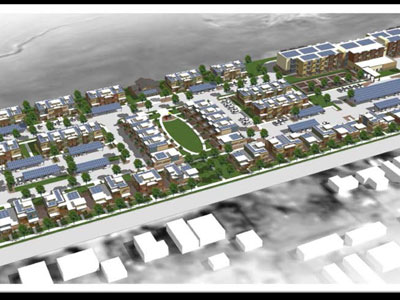In a collaborative effort to bring more energy efficiency into housing construction, the Paradigm project aims to offer affordable housing in the area of Lafayette, Colorado. To discuss the first stage of construction, Scott Simkus of the National Renewable Energy Laboratory (NREL) and representatives of the Farnsworth Group, an engineering and architectural firm, spoke at CSM’s Heiland Lecture.
The Paradigm Project is a collaborative effort between the Boulder County Housing Authority, All American Homes, Workforce Boulder County, Colorado School of Mines, as well as NREL. NREL’s involvement is unique as Simkus notes “NREL doesn’t generally work with housing authorities.” CSM’s part in the project came from the Geophysics department, which had the construction area tested due to the proximity of the building site to abandoned coal mines.
The name of the Paradigm Project comes from the project being a paradigm shift in the cooperation between government organizations for the sake of housing projects as well as the Paradigm Project being “a platform for testing how to do green job training” through the Training Innovation Green Renewable Energy program. The training program teaches community college students, as well as low income breadwinners, to set photovoltaic cells, make foundations, and other skills needed for the construction of sustainable architecture.
The sustainable housing units come in the form of single family housing, duplexes, as well as a 70-unit home for lower income seniors. These housing units have an average utility cost per unit of $583 per year through the use of 2.22kW solar panel systems, solar heating of water, insulated concrete foundation, high efficiency appliances, and a ground source heat pump.
The larger costs associated with sustainable architecture in the building of the Paradigm Project are offset by making use of systems-built construction, that is to say, modular units made in a factory and then assembled together on-site. These housing units are projected to cost between $105 and $125 per square foot and have anexpected payback time of roughly six years. The future phases of the Lafayette housing project are to include solar panel car ports to further decrease the energy use of the housing units.



'Collaboration aims to provide energy efficient housing' has no comments
Be the first to comment this post!